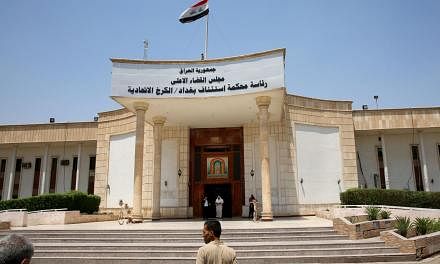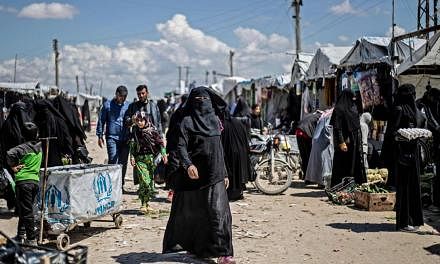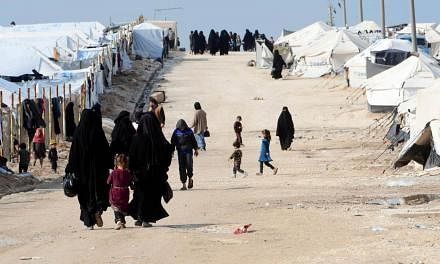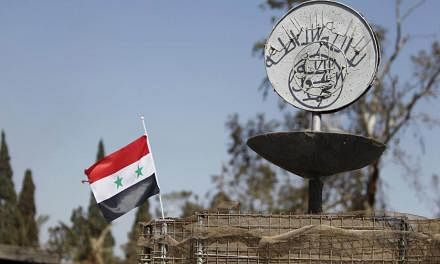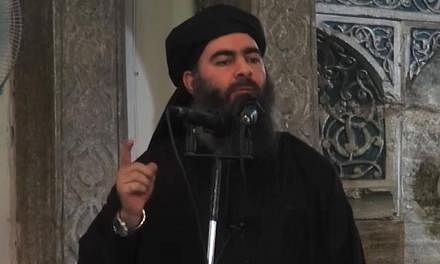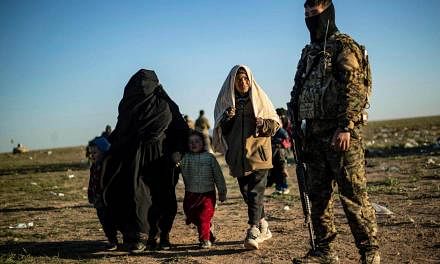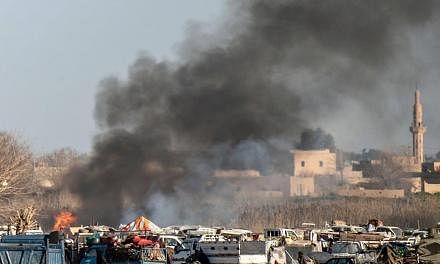A 40-year-old unemployed Singaporean man who intended to travel to Syria to join terror group ISIS was detained under the Internal Security Act (ISA) in January.
Two other radicalised citizens - a 62-year-old female production technician and a 39-year-old food deliveryman - were issued Restriction Orders (ROs) in March.
The Ministry of Home Affairs (MHA), which announced these arrests yesterday, said the men had considered travelling to Syria to join the Islamic State in Iraq and Syria (ISIS) after being radicalised online, while the woman had contacted multiple foreign entities suspected to be involved in terror-related activities, including ISIS supporters.
She is believed to be among the oldest persons to have been dealt with under the Act for terrorism.
Commenting on the latest cases, Minister-in-charge of Muslim Affairs Masagos Zulkifli said they stressed the need to stay vigilant against the threat of radicalisation.
"We must not allow the actions of a misguided few to overshadow the achievements of our community. Our Malay/Muslim community stands united and strong with fellow Singaporeans to keep our nation safe and secure," he added.
Culture, Community and Youth Minister Grace Fu said the threat of radicalisation and extremism affects everyone, a point discussed at last week's International Conference on Cohesive Societies here.
"We must continue to stand together with our Muslim friends, to protect the bonds between our races and religions in Singapore," she said in a Facebook post.
In a statement on the three cases, MHA outlined briefly how each individual was radicalised.
Imran Mahmood, who was detained in January, started listening to the lectures of foreign religious preachers online in 2013, and soon became a strong supporter of the violent objectives and actions of ISIS.
By 2014, he had developed a desire to live under the terror group's so-called caliphate, and researched viable entry points into Syria. He was willing to take up arms, and believed he would achieve martyrdom if he died fighting for ISIS.
But he started questioning ISIS' legitimacy in 2017, when the group started losing territory, though he continued to believe it was his religious duty to fight alongside any group trying to establish a rightful caliphate in Syria, said the ministry.
Imran also felt his radical views were legitimate, and was prepared to join other militant groups involved in the Syrian conflict, such as the Free Syrian Army and Hayat Tahrir Al-Sham, an Al-Qaeda-aligned faction, added MHA.
Meanwhile, Mohamad Fairuz Junaidi, 39, and Rasidah Mazlan, 62, who were both placed on an RO, got involved in terror-related activities by reports on the suffering of fellow Muslims in the Syrian conflict.
MHA said investigations found that food deliveryman Fairuz was emotionally affected by reports on the killing of Sunni Muslims in the Syrian civil war, while production assistant Rasidah's contact with radical elements was driven mainly by her deep sympathy for Muslims affected by the overseas conflicts.
Fairuz believed that the mainstream media had fabricated reports about ISIS' atrocities to discredit the group, but started to have doubts about the group's legitimacy in 2017 after he read negative reports on Facebook, and was swayed by criticisms against ISIS.
Meanwhile, Rasidah's "indiscriminate online activity rendered her vulnerable to adverse influence and recruitment by terrorist elements who pose a threat to Singapore", the ministry added. She was placed on an RO to prevent her from resuming contact with such elements.
The ROs both have been placed on require them to undergo counselling and rehabilitation. They will also have to seek official approval before changing jobs or addresses, or going abroad, among other things.
Professor Rohan Gunaratna of the S. Rajaratnam School of International Studies said elements of ISIS ideology exploit the suffering of Muslims in conflict zones. It is thus "important for humanitarian groups to create avenues for the public to express their grievances by supporting well-established humanitarian organisations", he said.
Yesterday, MHA also announced that four Singaporeans, aged between 24 and 50, had been released from detention with restrictions in March and June, after they showed good progress in their rehabilitation and were assessed to no longer pose a security threat that required preventive detention.
The RO issued against a 17-year-old Singaporean youth in June 2015 was also allowed to lapse when it expired this month, as he had shown good progress in his rehabilitation, the ministry added.


